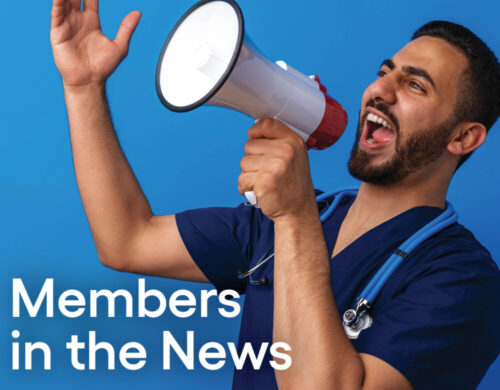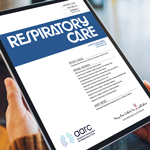
By Debbie Bunch
July 1, 2025
In the last edition of Career News, we shared the story of Gary Revas, DHA, RRT, RRT-NPS — a therapist who began his career like many people in the profession by earning an AS degree and going to work in a hospital department.
Thanks to his hard work and drive to advance his education, Dr. Revas is currently the vice president of operations for the Shawnee and Seminole campuses of SSM Health St. Anthony Hospital in Oklahoma.
In this edition, he shares the four key things he feels he learned as an RT that served him well as he made his climb up the leadership ladder.
Communication: To find leadership success, communication is vital. Working at the bedside, I was exposed to many different types of personalities and varying communication styles, which has helped me better understand how I can relay needed messages to whoever is in front of me. Patients, families, providers, and coworkers all require different delivery styles of messaging,g and being at the bedside will quickly expose your deficiencies in communication. The ability to adapt and understand each unique environment is vital to success.
Collaboration: Successful leaders understand that much of their success comes from being able to collaborate with others. As RTs, we spend a significant amount of our time working closely with other bedside caregivers to ensure our patients achieve successful outcomes. We are not alone in providing care. Working closely with nursing, therapy, pharmacy, and many other departments prepares future leaders for the diverse range of stakeholders they will encounter as their careers progress.
Problem Solving/Critical Thinking: Working the bedside in a high-acuity hospital requires you always to be ready. Along with this, you must be able to quickly pivot and make yourself available for the next thing. This experience has transitioned well into leadership.
Recognition of the Patient Experience: The experience of caring for a diverse range of patient populations, as well as working in various communities, has helped me better understand what our patients are going through. I have been able to better connect with what we are doing here and understand that there is more to it than just completing a task. This has carried over to my interactions with those I work with as well, being truly focused on the human experience.
But once an RT, always an RT
Despite his move into upper management at SSM Health St. Anthony, Gary Revas has maintained his strong ties to the respiratory care profession, both through his active membership and service to the AARC and the Oklahoma Society for Respiratory Care, as well as his retention of his RT credentials. It’s something he says he’ll continue.
“I plan to stay closely tied to the field of respiratory throughout my career,” he said.








